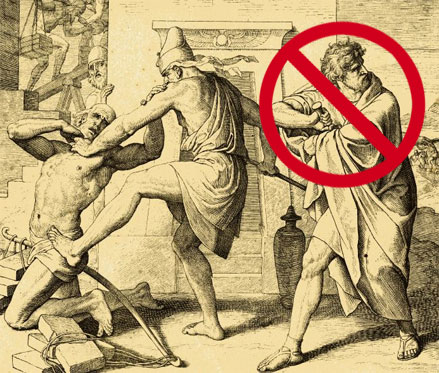Good Death – 2
Was Moses a murderer?
 Moses’ execution of the Egyptian was “good death.” It was judicial. Moses had the authority to pass judgment and execute the sentence, and later became the judge of his people. “And Moses was instructed in all the wisdom of the Egyptians, and he was mighty in his words and deeds” (Acts 7:22). However, he rightly feared Pharaoh’s unjust reaction.
Moses’ execution of the Egyptian was “good death.” It was judicial. Moses had the authority to pass judgment and execute the sentence, and later became the judge of his people. “And Moses was instructed in all the wisdom of the Egyptians, and he was mighty in his words and deeds” (Acts 7:22). However, he rightly feared Pharaoh’s unjust reaction.
The Hebrews’ rejection of Moses as their judge condemned them to 40 years’ more slavery. They were at fault, not Moses.
Okay, so Moses did look this way and that, and buried the body in the sand. Yes, but the point was he feared Pharaoh’s reaction.
The Hebrews’ rejection of him as their judge condemned them to 40 years’ more slavery. Just as in the wilderness when Moses was their judge, it was the next generation that would be delivered. Moses was not condemned:
“The Bible never criticises Moses for this, but presents his action as righteous and faithful (Acts 7:24ff.; Heb. 11:24ff.). The execution of criminals is never said to defile the land, or to require atonement; such execution is itself the atonement required.” James B. Jordan, The Law of the Covenant, p. 254-5.
Moses’ judgment pictured the greater one to come upon the Egyptian taskmasters at his return—prefiguring Christ’s ministry in the first century.

























